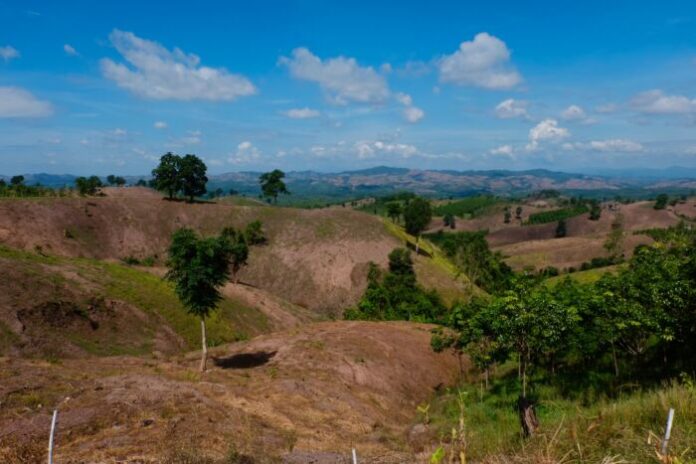
The countries of the European Union, due to the import of products such as soy, palm oil, beef, cocoa, coffee and wood, are among the main causes of tropical deforestation and the destruction of ecosystems such as grasslands, savannas and wetlands , for a total of 203 thousand hectares of compromised natural land and 116 million tons of CO2 emitted between 2005 and 2017.
This is what is stated in the report from the WWF entitled “Stepping up: the continuing impact of Eu consumption on nature”, which reveals the harmful consequences of the so-called “embedded deforestation”, which takes place through imported goods, on tropical and subtropical ecosystems in Central America southern, Africa and Southeast Asia. Based on data and insights made by the Stockholm environment institute (Six) and on the analyzes of the Transparency for sustainable economies-trase, the dossier shows that eight EU economies, including, in order, Germany, Italy, Spain, Great Britain (still included in the count), the Netherlands, France, Belgium and Poland, alone generated 80% of the deforestation linked to European imports from tropical countries.
According to the WWF report, in 2017 the European Union was the second largest importer of deforestation incorporated in products, immediately after China. In the study period, the EU caused 16% of deforestation associated with international trade, surpassing India (9%), the United States (7%) and Japan (5%).
Between 2005-2017, soybeans, palm oil and beef were, in quantitative terms, the products imported from the EU with the greatest weight in tropical deforestation, followed by wood products taken from plantations, cocoa and coffee.
The areas most affected by this phenomenon, for the import of soy and beef, are the Cerrado and the Amazon in Brazil and the Chaco in Paraguay and Argentina, for cocoa in Central Africa, and for the oil of palm Indonesia, Malaysia and Papua New Guinea.
In addition to forests, the dossier explains, the phenomenon also affects other natural ecosystems, such as grasslands, wetlands and savannas, rich in biodiversity and points of reference for local communities, destroyed due to agricultural exploitation. Even with zero deforestation, it is expected that seven million hectares of land in Paraguay, 10.5 million in Argentina and 88 million in Brazil could be destroyed by the advance of agriculture.
“The expansion of agriculture in tropical regions” – reads the dossier – “is the greatest threat to forests and other natural ecosystems, globally responsible for the deforestation of five million hectares of forest on agricultural land between 2005 and 2017”.
The responsibility for this phenomenon is not exclusive to producer countries, but also to importing countries: the laws of the selling countries, in fact, are not sufficient to protect natural ecosystems and global markets exert increasing pressure on intact areas, creating new frontiers of conversion. .
According to one of the report’s lead authors Anke Schulmeister-Oldenhove, Senior Forest Policy Officer at WWF’s European Policy Office-EPO: “Around the world, deforestation and transformation of natural ecosystems are fueling the climate and biodiversity crisis. We are sawing the branch on which humanity sits and endangering our own health “.
“Although the European Union has pledged to stop deforestation by 2020” – the Report continues – “and although 2020 has passed, we are far from achieving this goal. The EU continues to lead the destruction of forests and other ecosystems through the consumption of goods “.
For this, the WWF proposes legislation to stop the destruction of forests and other ecosystems, which includes eight fundamental points.



































